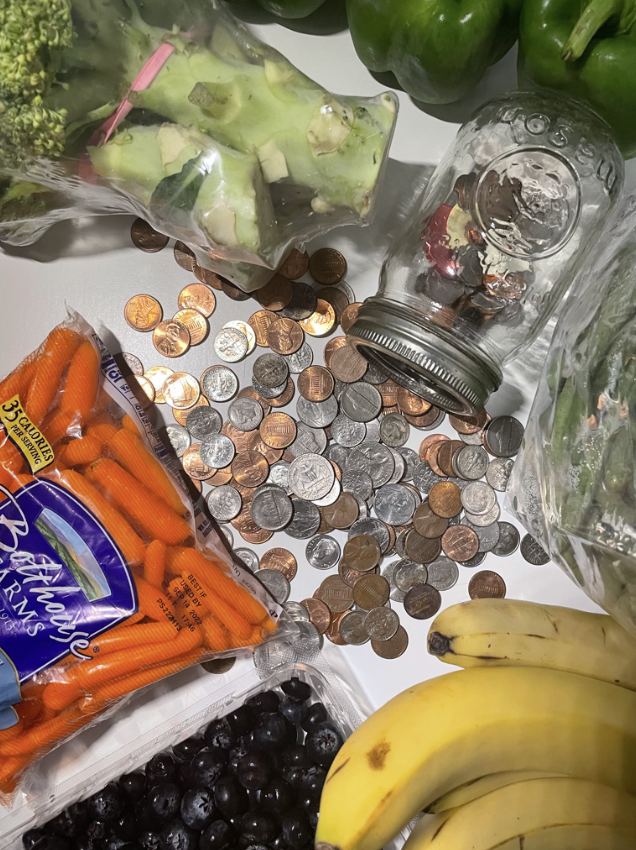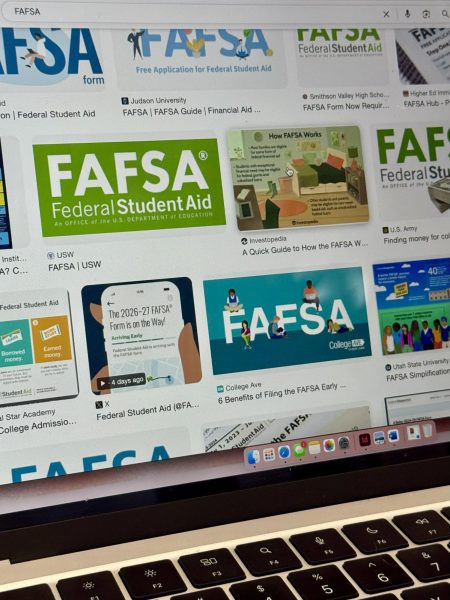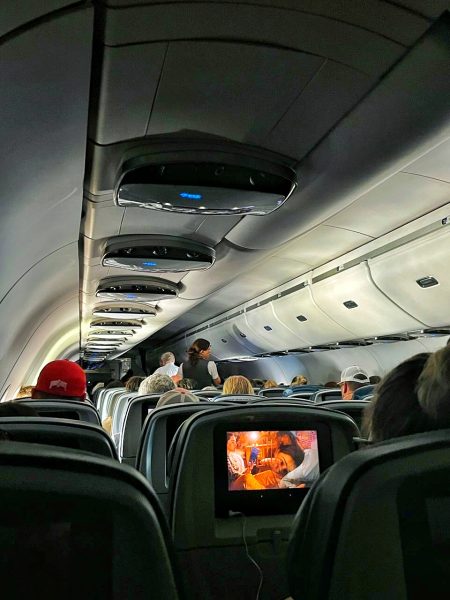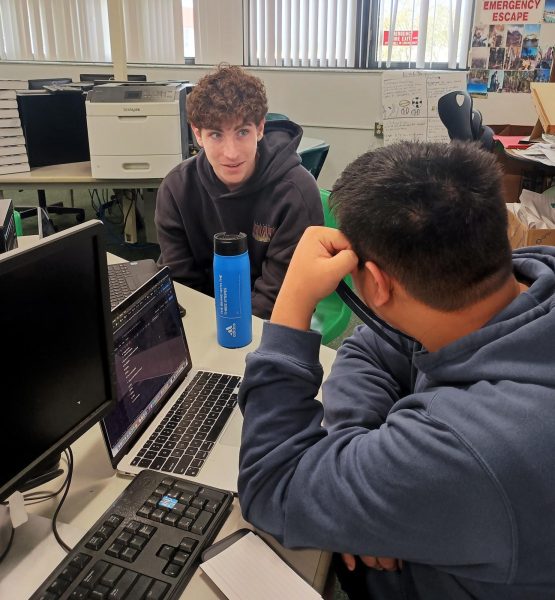The Free Lunch Program Has Ended: What does this mean for SPHS?
Collection of money and foods.
Settling back into school is usually a difficult task for most students. New classes come with new worries and rising anxiety, leading up to that dreaded day marked on everyone’s calendar. There are many ways for students to become easily overwhelmed and quickly distracted. Research shows that students lose anywhere from 15-39% of the information they worked relentlessly to obtain the previous year.
While acknowledging all of these aspects of a new beginning, we must also realize a new year at SPHS does not mean a blank slate for a large portion of students. Many students face obligations such as textbooks, computers, and other forms of debt from the past year. Yes, it is the infamous ‘obligation list’ with the giant board of names outlining the reasons as to why they have made it onto possibly the most public display of punishment in SPHS. Of course, things such as broken laptops and missing library books are important, and students should feel responsible for replacing or paying for the item. However, there is soon to be a more pressing matter looming over current and future class years, which can impact a student’s reason for being added to the obligation list.
A national program entitled School Meals For All provided funding to Pinellas County during the COVID-19 pandemic. The program granted access to every student to receive school lunch for free. The issue of finding a meal for lower-income families has resurfaced once again as we are no longer under a state of emergency. The option for free and reduced lunch is still available, but it requires a specific set of forms that must be filled out. In addition to the obvious barriers, such as language, there’s a multitude of reasons why a parent or guardian may not feel comfortable submitting these documents. These forms can take up to 10 days to be approved.
Financial situations are always complicated ordeals, income can change or suddenly become unreliable, and parents could struggle with addiction or health. Do those disadvantages mean a child must buy a lunch they cannot pay for? Or learn on an empty stomach? Hunger has negative effects on the body and can draw the line between success and failure.
Debt from lunches that have been put under a student’s pin code but not paid for will quickly add up, which can add to the names on the obligation list. More names mean fewer graduates. SPHS needs a high graduation rate, not just for reputation, but for the betterment of students’ lives. A high graduation rate can be achieved, however, the revival of the School Meals for All program must be part of that plan.








